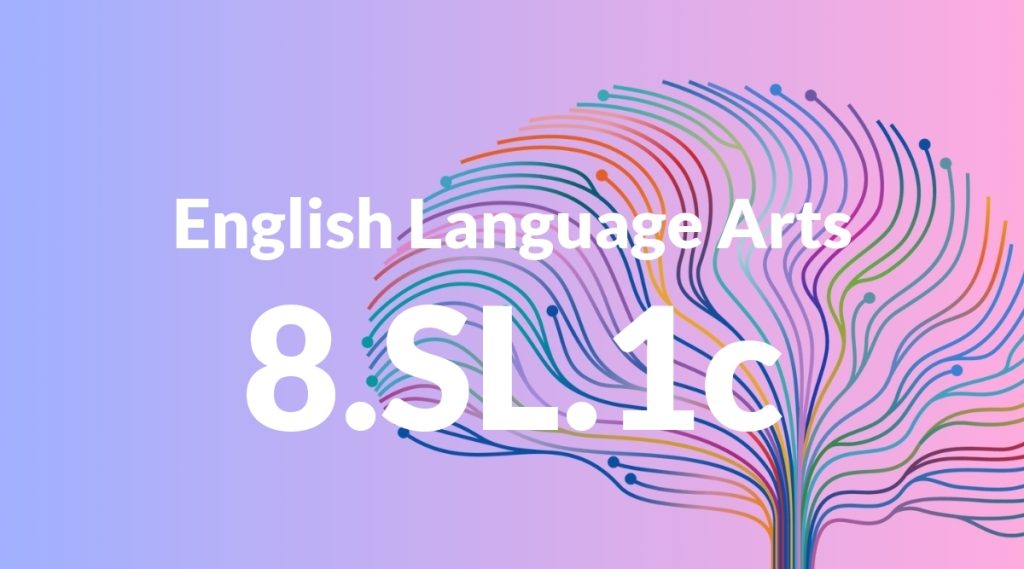Standard: 8.SL.1c – Pose questions that connect the ideas of several speakers and respond to others’ questions and comments with relevant evidence, observations, and ideas.
Grade level: Grade 8
Subject: English Language Arts
Domain: Speaking & Listening
Teacher Overview
This standard focuses on enhancing students’ ability to engage in meaningful discussions by connecting ideas from multiple speakers and providing relevant responses. It is crucial for developing critical thinking and communication skills, which are essential for academic and real-world success. Students should have foundational skills in active listening, questioning, and providing relevant responses. These skills are necessary to effectively engage in discussions and connect ideas.
Mastering this standard will prepare students for more advanced discussion skills, enabling them to synthesize information from various sources and engage in critical thinking.
Common Misconception 1
A common misconception is that any participation is valuable, regardless of relevance. This is incorrect because irrelevant questions or comments can derail a discussion and hinder understanding.
Intervention 1
To address this, provide examples of relevant and irrelevant questions/comments, and practice evaluating them in class discussions.
Common Misconception 2
Another misconception is that responses do not need to be supported by evidence or observations. This is incorrect because unsupported responses lack credibility and fail to contribute meaningfully to the discussion.
Intervention 2
To remediate this, use guided practice sessions where students must support their responses with evidence and observations.
Prerequisite Knowledge
Students should have basic skills in active listening, understanding of how to ask and answer questions, and the ability to provide relevant responses in conversations.
Subsequent Knowledge
Students will develop advanced discussion skills, including the ability to synthesize information from multiple speakers and engage in more complex and critical thinking discussions.
Instructional Activities
- Role-playing different discussion scenarios
- Peer review of discussion questions and responses
- Analyzing recorded discussions for relevance and evidence
- Group projects with structured discussion components
- Mock panel discussions with assigned roles




